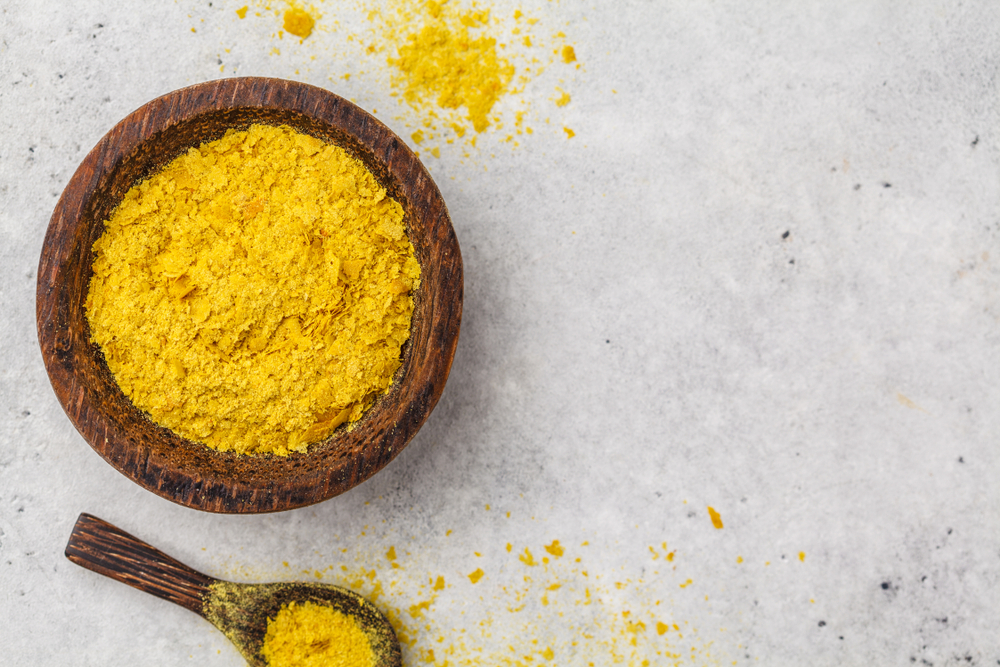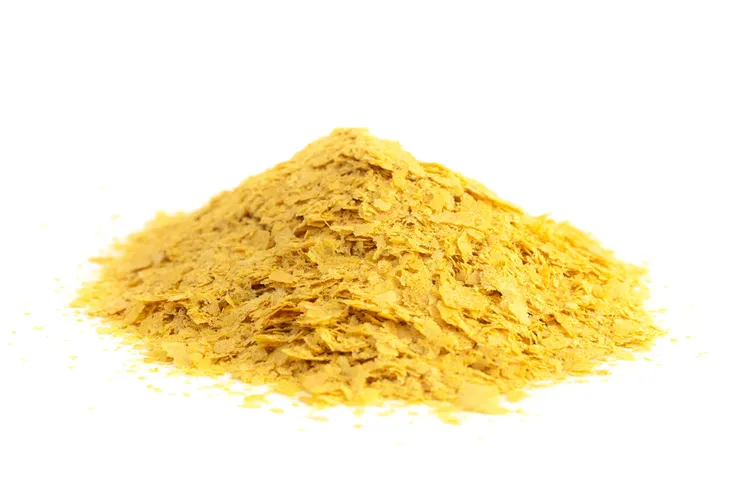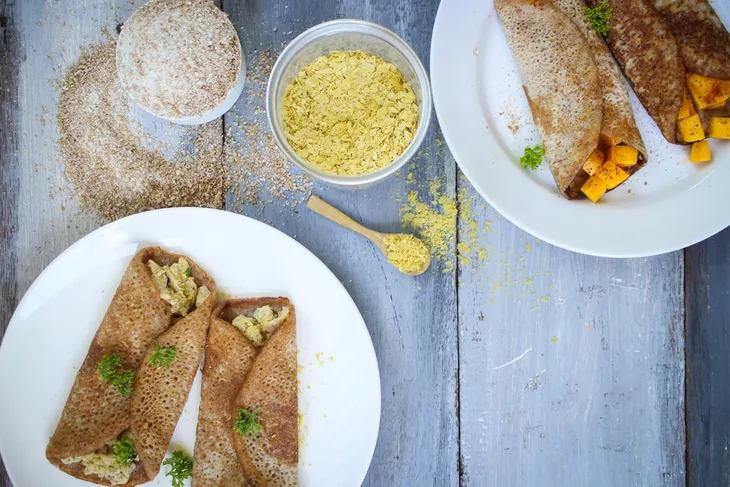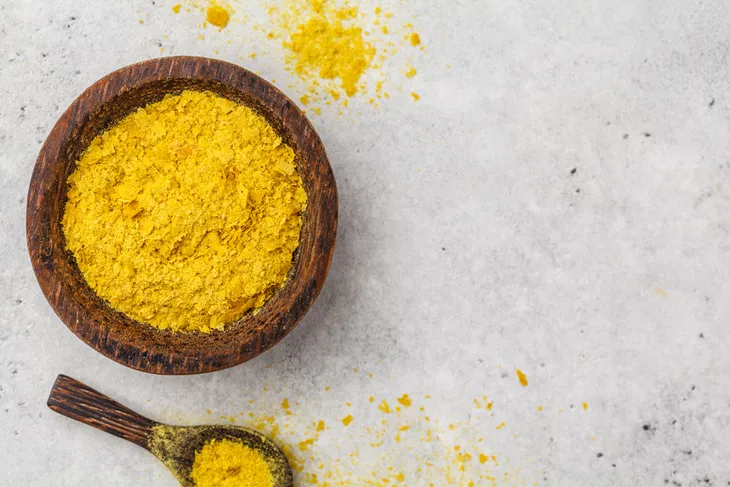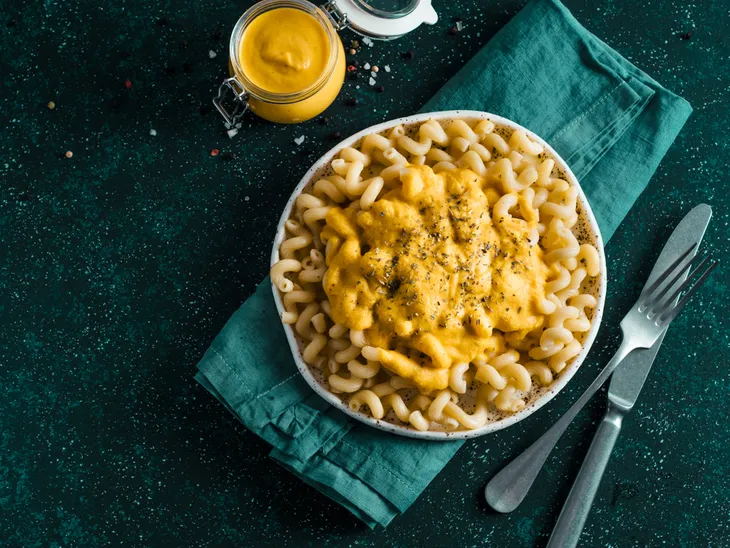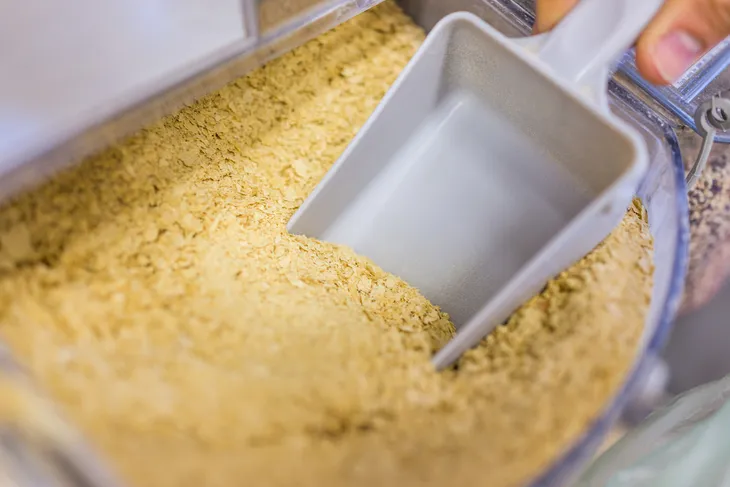Nutritional yeast might not sound very appetizing as it rolls off your tongue, but trust me; a few sprinkles over a freshly popped bowl of stove-popped corn will convince you to add these flakes to pretty much every dish or snack.
I’m not quite sure when I discovered nutritional yeast flakes, but they certainly add a delicious, zesty flavor (like Parmesan cheese) to veggies, popcorn, pasta, soups, stir fries and plenty more dishes for the casien allergic (to cow dairy protein), vegans and vegetarians, and the milk-intolerant. Plus, nutritional yeast flakes add plenty of vitamins, minerals, and protein—not to mention a pretty impressive lineup of health benefits to any diet…
Nutritional Yeast Isn’t Like Other Yeasts
While you may have noticed both nutritional yeast flakes and brewer’s and baking yeasts all at your local market, it would be wrong to let you confuse nutritional yeast with other yeasts, which are all used for very different things.
Nutritional yeast (Saccharomyces Cerevisiae or “nooch”) grows typically on blackstrap molasses, whey, or wood pulp. This type of yeast is harvested, washed, dried, deactivated using heat (so it won’t make anything rise), and ground into a powder or flakes. Baker’s yeast, on the other hand, is an active yeast used for bread-making while brewer’s yeast is inactive, but distinctly bitter for beer-making.
It’s a Complete Protein
Yes, nutritional yeast is a complete protein, which means that half (or 9) of the 18 amino acids within this yeast are not produced by the body. This makes it a boon for vegans and vegetarians, who often need a little help boosting their protein intake.
And because nutritional yeast is a plant-based protein, it’s likewise safe for those with milk allergy, milk intolerance, or those who simply don’t eat enough animal and dairy proteins in their diets.
Satiating, Minus the Fat and Sodium
According to Brandice Lardner, an NASM-certified personal trainer and nutrition coach, nutritional yeast contains plenty of protein, iron, selenium, zinc, vitamin Bs, and fiber to fill up hungry bellies and energize the body. However, the good news is that these flakes contain very little fat or sodium.
In fact, a mere half tablespoon of flakes provides an excellent source of B vitamins (niacin, folate, thiamine, and B-6) to aid red blood cell production and help distill energy from the foods we consume.
Nutritional Yeast is Completely Gluten-Free
As someone with a casein allergy, I obviously enjoy nutritional yeast as a safe substitute for animal cheese and dairy products. The flakes have a distinctive nutty, creamy, and even cheesy flavor (similar to Parmesan cheese) that’s a hit on popcorn, eggs, potatoes and veggies. However, nutritional yeast is also soy and gluten-free as well.
So if you must avoid wheat products, you can still gobble up nutritional yeast on a variety of foods. This is equally great news if you’re prone to candidiasis infections, a type of fungal infection aggravated by the Candida albicans yeast (nutritional yeast contains zero Candida Albicans).
Selenium-Rich Cancer Prevention
While you already know that nutritional yeast provides a ton of protein, fiber, and B essential vitamins, it’s the selenium content within that’s been linked to everything from boosting immunity to preventing certain types of cancer (i.e., colon cancer and lung cancer).
This 2004 research from the National Institutes of Health claims that low selenium levels, especially in men, can increase the overall risk of cancer when the body’s other antioxidant defenses are low. The NIH recommends a diet rich in selenium sources—from foods like nutritional yeast, whole grains, brazil nuts, and sunflower seeds—for both men and women.
A Nourishing Mood Boost
According to Atlanta-based certified nutrition specialist and physician Tasneem Bhatia, nutritional yeast has long been used as a food additive among vegetarians and vegans…for very emotional reasons.
The reason many non-meat eaters are sprinkling nutritional yeast has less to do with the addictive cheesy flavor and more to do with the nourishing boost in vitamin-B levels (B1, B2, B6, folic acid, and fortified B12) it provides. The B vitamins help balance hormones and mood, and those who lack animal-based proteins in their diet can struggle to stabilize B levels.
